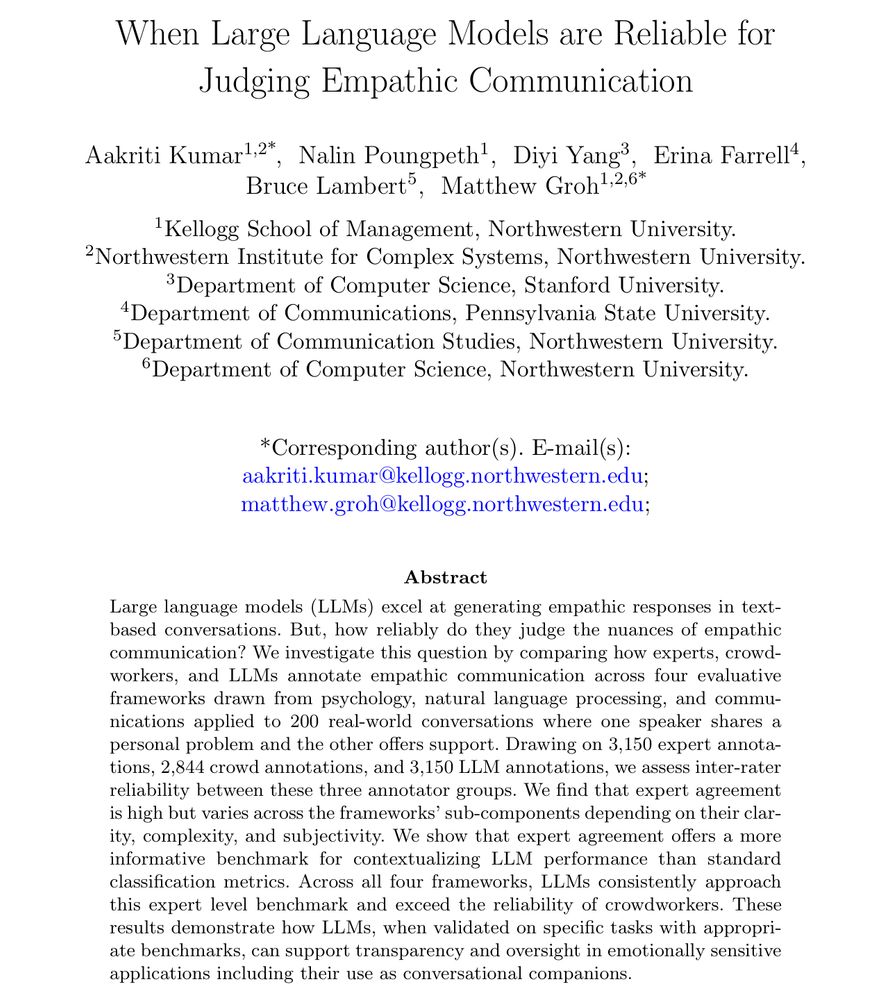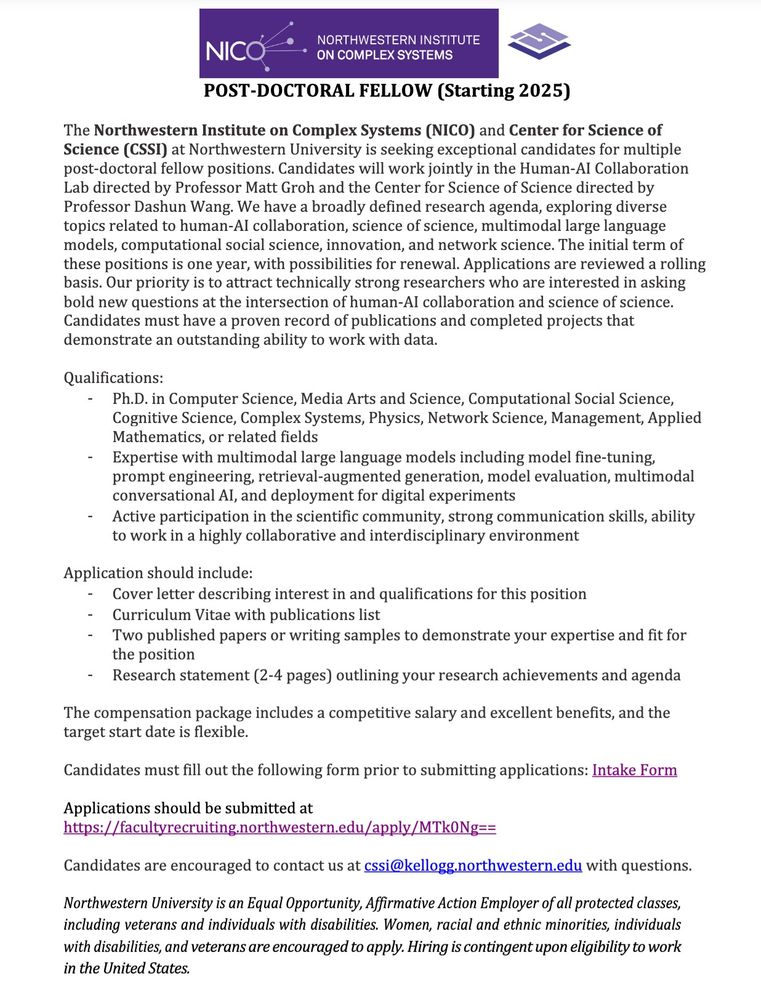Excited to share the first paper from my postdoc (!!) investigating when LLMs are reliable judges - with empathic communication as a case study 🧐
🧵👇

Excited to share the first paper from my postdoc (!!) investigating when LLMs are reliable judges - with empathic communication as a case study 🧐
🧵👇
Feel free to reach out!
Dashun Wang and I are seeking a creative, technical, interdisciplinary researcher for a joint postdoc fellowship between our labs.
If you're passionate about Human-AI Collaboration and Science of Science, this may be for you! 🚀
Please share widely!

Feel free to reach out!
We show that a simple approach to learn safe RL policies can outperform most offline RL methods. (+theoretical guarantees!)
How? Just allow the state-actions that have been seen enough times! 🤯
arxiv.org/abs/2410.09361

We show that a simple approach to learn safe RL policies can outperform most offline RL methods. (+theoretical guarantees!)
How? Just allow the state-actions that have been seen enough times! 🤯
arxiv.org/abs/2410.09361

